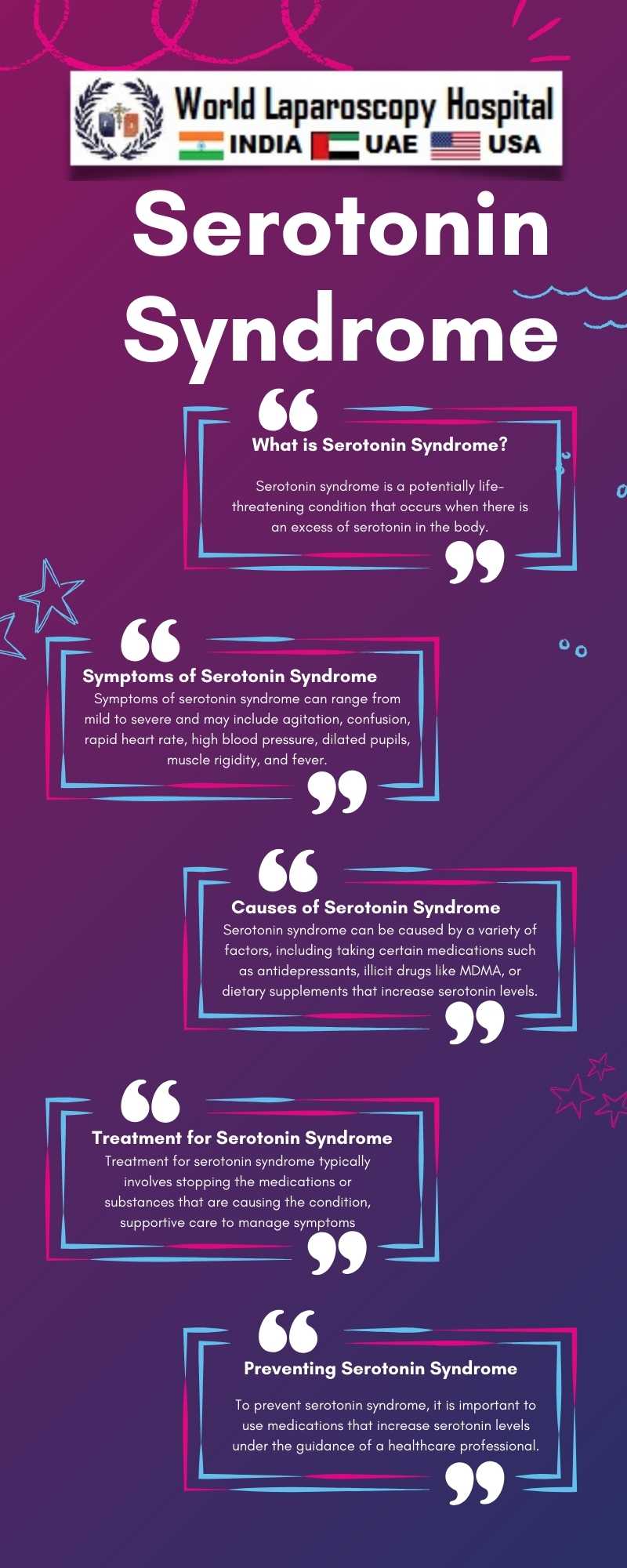Serotonin syndrome: Can occur due to drug interactions in the surgical setting, leading to high levels of serotonin
Serotonin syndrome is a potentially life-threatening condition that can occur due to drug interactions, particularly in the surgical setting. This syndrome is characterized by a constellation of symptoms resulting from excessive levels of serotonin in the body. Serotonin is a neurotransmitter that plays a crucial role in regulating mood, appetite, and sleep, among other functions. However, when serotonin levels become too high, it can lead to a range of symptoms, from mild to severe.

In the surgical setting, serotonin syndrome can occur when patients are prescribed or administered medications that increase serotonin levels. These medications include selective serotonin reuptake inhibitors (SSRIs), serotonin-norepinephrine reuptake inhibitors (SNRIs), and monoamine oxidase inhibitors (MAOIs), which are commonly used to treat depression, anxiety, and other psychiatric disorders. Additionally, medications used for anesthesia and pain management, such as tramadol and meperidine, can also contribute to serotonin syndrome.
The symptoms of serotonin syndrome can vary widely and may include confusion, agitation, muscle rigidity, tremors, sweating, diarrhea, and fever. In severe cases, serotonin syndrome can lead to seizures, coma, and even death. Therefore, it is essential for healthcare providers in the surgical setting to be aware of the risk factors and symptoms of serotonin syndrome, particularly when prescribing medications that can increase serotonin levels.
Preventing serotonin syndrome in the surgical setting requires careful monitoring of patients' medication regimens and avoiding the use of medications that can interact with each other to increase serotonin levels. Healthcare providers should also educate patients about the signs and symptoms of serotonin syndrome so that they can seek medical attention if necessary.
Conclusion
Serotonin syndrome is a serious condition that can occur due to drug interactions in the surgical setting. Healthcare providers must be vigilant in monitoring patients' medication regimens and educating them about the signs and symptoms of serotonin syndrome. By taking these precautions, healthcare providers can help prevent serotonin syndrome and ensure the safety of their patients.

In the surgical setting, serotonin syndrome can occur when patients are prescribed or administered medications that increase serotonin levels. These medications include selective serotonin reuptake inhibitors (SSRIs), serotonin-norepinephrine reuptake inhibitors (SNRIs), and monoamine oxidase inhibitors (MAOIs), which are commonly used to treat depression, anxiety, and other psychiatric disorders. Additionally, medications used for anesthesia and pain management, such as tramadol and meperidine, can also contribute to serotonin syndrome.
The symptoms of serotonin syndrome can vary widely and may include confusion, agitation, muscle rigidity, tremors, sweating, diarrhea, and fever. In severe cases, serotonin syndrome can lead to seizures, coma, and even death. Therefore, it is essential for healthcare providers in the surgical setting to be aware of the risk factors and symptoms of serotonin syndrome, particularly when prescribing medications that can increase serotonin levels.
Preventing serotonin syndrome in the surgical setting requires careful monitoring of patients' medication regimens and avoiding the use of medications that can interact with each other to increase serotonin levels. Healthcare providers should also educate patients about the signs and symptoms of serotonin syndrome so that they can seek medical attention if necessary.
Conclusion
Serotonin syndrome is a serious condition that can occur due to drug interactions in the surgical setting. Healthcare providers must be vigilant in monitoring patients' medication regimens and educating them about the signs and symptoms of serotonin syndrome. By taking these precautions, healthcare providers can help prevent serotonin syndrome and ensure the safety of their patients.
1 COMMENTS
Dr. D Stamey
#1
Feb 26th, 2024 5:52 am
Serotonin syndrome, a grave risk in surgical care, stems from drug interactions. Vigilant monitoring and patient education on symptoms are paramount. Proactive measures by healthcare providers mitigate serotonin syndrome, ensuring patient safety during treatment.
| Older Post | Home | Newer Post |


